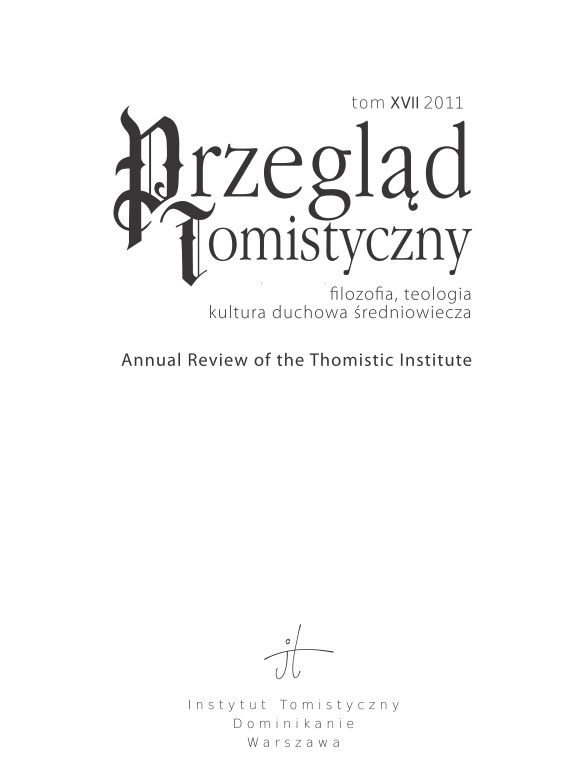STEFANO CAROTI, Notes on the concept of modus in the thirteenth and fourteenth centuries

Volume XVII: 2011
Philosophy — Theology— Spiritual Culture of the Middle Ages
ISSN 0860-0015
e-ISSN 2544-1000
SUMMARY
The interest of scholars toward the medieval notion of modus is mainly focused on the so called Grammatica speculativa. There are some other philosophical contexts where modus plays a very important role. This paper is focused on the importance of this notion in some XIIIth and XIVth Century philosophers beginning with St. Thomas Aquinas, who deals with modus in some texts where Augustine’s threefold expression ordo, species, modus is quoted and discussed. St. Thomas resorts to modus either for confirming God’s transcendence and infinity or to state the difference inside the category of quality. According to Remy of Florence modus can be considered a sort of quality, and on this basis he relies on this notion to strengthen the power of language in rendering the complexity of beings. For Remy modus refers not only to the finite nature of created beings, but also to their different dispositions, which permit to enlarge the ontological panorama without increasing the number of the Aristotelian categories. Giles of Rome turns to modus for solving some crucial problems such as the real distinction between esse et essentia, the plurality of forms and the transubstantiation. The partecipatio formae has to be considered for him not a third ontological state in addition to form and matter, but only a modus. Godfrey of Fontaines blames Giles’ solution as untenable, because there is no need to add a third element to matter and to form in order to deal with substances. The importance given to the modi risks according to Godfrey to attribute the main role in ontology to an accidental aspect the; he thinks that many problems raised by such position could be solved applying to semantics, reducing the modi essendi to modi significandi. Gerald from Siena support Giles’s solution and replies to Godfrey’s censures, to which Alphonsus Varga seems well inclined in his criticism against Gerald’s interpretation of Giles’ philosophy.
